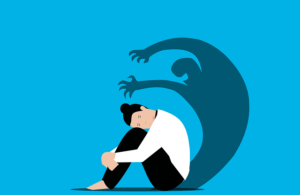
Depression is more than just feeling sad or going through a rough patch—it’s a serious mental health condition that affects millions of people worldwide. In this article, we’ll explore what depression is, its impact on individuals, and the importance of raising awareness and understanding.
Define Depression and Its Impact
Depression is a mood disorder that causes persistent feelings of sadness, loss of interest in activities once enjoyed, and a range of physical and emotional symptoms. It can affect how you feel, think, and handle daily activities, and it can vary in severity.
Understanding depression is crucial because it affects not only the individual but also their relationships, work, and overall quality of life. By increasing awareness, we can reduce stigma and encourage those affected to seek help.
Symptoms and Types of Depression
Depression manifests in various ways, but common symptoms include:
- Persistent sadness or empty mood
- Loss of interest or pleasure in activities once enjoyed
- Changes in appetite or weight
- Sleep disturbances (insomnia or oversleeping)
- Fatigue or loss of energy
- Feelings of worthlessness or guilt
- Difficulty concentrating or making decisions
- Thoughts of death or suicide
There are different types of depression, including major depressive disorder (MDD), persistent depressive disorder (dysthymia), bipolar disorder (manic depression), seasonal affective disorder (SAD), and others. Each type may have unique symptoms and treatment approaches.
Causes and Risk Factors
Depression can result from a combination of biological, psychological, and environmental factors:
- Biological factors: Imbalances in neurotransmitters (brain chemicals) like serotonin and norepinephrine.
- Psychological factors: Personal history of trauma or stress, low self-esteem, or certain personality traits.
- Environmental factors: Chronic stress, major life changes (such as loss or financial difficulties), and social isolation.
- Certain factors may increase the risk of developing depression, including genetics, family history, and certain medical conditions or medications.
Treatment Options
Treatment for depression often involves a combination of approaches tailored to the individual’s needs:
- Therapy and counseling: Cognitive-behavioral therapy (CBT), interpersonal therapy (IPT), and other forms of talk therapy can help individuals understand and manage their thoughts and behaviors.
- Medication: Antidepressant medications, such as SSRIs (Selective Serotonin Reuptake Inhibitors) or SNRIs (Serotonin and Norepinephrine Reuptake Inhibitors), may be prescribed to help regulate brain chemistry.
- Lifestyle changes: Regular physical activity, healthy diet, adequate sleep, and stress management techniques can support overall well-being.
- Support groups and resources: Peer support groups, online communities, and local resources can provide encouragement and shared experiences.
Living with Depression
Managing daily life with depression can be challenging, but there are strategies to help cope:
- Tips for managing daily life: Establishing a routine, setting achievable goals, and breaking tasks into smaller steps can help manage symptoms.
- Building a support system: Surrounding yourself with understanding friends, family, or support groups can provide emotional support and practical assistance.
- Self-care strategies: Practicing self-care, such as engaging in activities you enjoy, setting boundaries, and seeking professional help when needed, is essential for maintaining mental health.
Understanding depression is the first step towards effective management and recovery. It’s important to seek help from qualified mental health professionals who can provide diagnosis, support, and treatment options tailored to individual needs. Remember, you are not alone, and there are resources available to support you on your journey towards better mental health.
Resources and Hotlines
If you or someone you know is struggling with depression, don’t hesitate to reach out for help. Here are some resources:
National Resources:
- National Institute of Mental Health and Neurosciences (NIMHANS):
- Located in Bangalore, NIMHANS is a premier mental health institution in India offering clinical services, research, and training programs.
- Website: https://nimhans.ac.in/
- VISHRAM (Vidyasagar Institute of Mental Health, Neuro & Allied Sciences):
- Based in New Delhi, VISHRAM provides mental health services, including counseling and therapy.
- Website: http://www.vimhans.net/
- Sumaitri:
- A crisis intervention center in Delhi providing emotional support, counseling, and suicide prevention services.
- Website: http://sumaitri.net/
Helplines:
- Vishram Dharma Health Care Helpline:
- Helpline providing emotional support and guidance for mental health issues.
- Helpline: +91-9811752424
- Snehi Helpline:
- Provides emotional support and counseling in Hindi, English, and Marathi.
- Helpline: +91-22-2778-8899
Online Resources:
- e-Minds:
- A web portal by the Indian Psychiatric Society offering mental health information, resources, and support.
- Website: https://www.eminds.co.in/
- Manas Foundation:
- Offers mental health services and resources, including online counseling and workshops.
- Website: https://manas.org.in/
National Helplines:
- National Institute of Mental Health and Neurosciences (NIMHANS) Helpline:
- Provides telephonic counseling and support.
- Helpline: 080-46110007
- AASRA:
- Provides support to individuals in emotional distress or at risk of suicide.
- Helpline: 91-9820466726 (24×7)
Recovery from depression is possible with the right support and treatment. Take small steps towards self-care and seek help when needed. You deserve support and understanding on your mental health journey.
